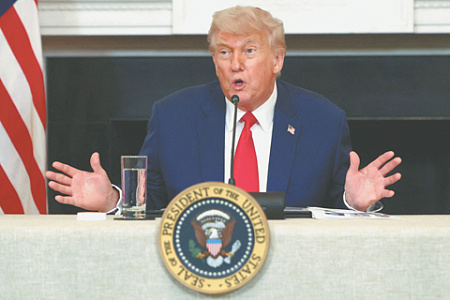
The White House has put the international community on notice, informing 14 countries of significant new tariffs set to take effect on August 1st. The move marks a dramatic escalation of President Donald Trump’s protectionist trade policy, targeting key U.S. allies and economic partners alike and giving them a tight deadline to negotiate new terms or face steep economic penalties.
In his signature style, President Trump bypassed official channels to announce the policy on his Truth Social platform. The proposed duties range from 25% on goods from allies like Japan and South Korea to as high as 40% for Laos and Myanmar, nations Washington views through the lens of its economic rivalry with China. Other countries on the list include Kazakhstan, Tunisia, South Africa, Indonesia, and Serbia, creating a broad front in Trump’s push to rebalance what he deems unfair trade relationships.
Despite their historically strong security and political ties with Washington, the inclusion of Japan and South Korea underscores the administration’s message that no country is exempt from its trade agenda. In Seoul, the move is seen by some as a consequence of recent domestic political turmoil that derailed previous trade talks. Both Tokyo and Seoul, along with the other targeted nations, have signaled their intent to dispatch officials to Washington in hopes of averting the tariffs.
President Trump has indicated that the door for negotiation remains open, stating the tariffs could be adjusted “depending on our relationship with your country.” This conditional approach may explain the relatively muted reaction from U.S. stock markets, which did not fall as sharply as they did during previous tariff threats. For now, investors appear to be betting against the outbreak of a full-scale global trade war, especially as the European Union and China have been omitted from this latest round.
However, the political dimension of Trump’s trade policy has become increasingly explicit. The administration has already finalized bilateral trade agreements with the United Kingdom and Vietnam, two key strategic partners in NATO/AUKUS and in countering China’s influence in Asia, respectively. This suggests that geopolitical alignment is a crucial factor in securing favorable trade terms with Washington.
Further cementing this link between trade and geopolitics, Trump issued a direct threat against the BRICS bloc. Following a statement from the group’s finance ministers that criticized U.S. policy and questioned the dollar’s dominance, Trump warned that any country pursuing what he termed “anti-American BRICS policies” would face an additional 10% tariff. This declaration transforms the tariffs from a mere trade tool into an explicit weapon of foreign policy, aimed at punishing countries that challenge America’s economic and political leadership.
